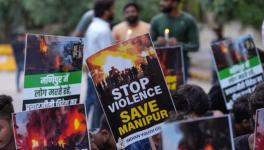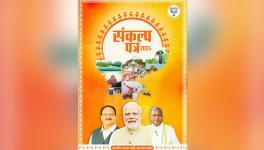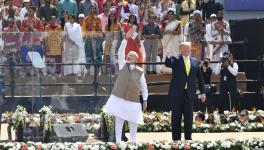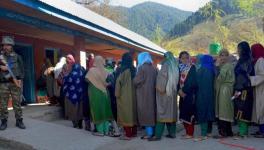Indian Media Loses its Credibility
Image Courtesy : UN Foundation
It was disappointing to see that almost all the Indian TV channels aired the Indian Prime Minister’s full speech at the UN, as big important, and dominating news.
Over all these years, this never happened. At the most, it used to be a small piece of news, whether it was about Sushma Swaraj or at one time SM Krishna addressing the General Assembly. But not necessarily making it the kind of almost 2 hours of evening news of great importance. But that is what has happened to us in India. While we complain about the dominant presence of our PM in media, it is our media, that is responsible for making him a dominant presence. In this case all other news was held up while we listened to our PM at the UN.
Speeches by heads of state at the UN, are not taken seriously, at the UN or elsewhere. Many of us, who, over the decades, have attended UN meetings, including in September, don’t bother listening to these speeches. They are seen as rhetorical and self-promotional. The real work is in the committees and subject specific intergovernmental and expert group meetings.
Another unfortunate lapse by our media was that they did not pay any attention to the details in the speech delivered by the Prime Minister of Pakistan. They alluded to it as the usual Pakistani voice, fighting over Kashmir, and then highlighted the response of one of the MEA officials, who is now at the UN, dismissing it.
But, out of curiosity, I listened to Imran Khan on Al Jazeera, and what a fine speech he delivered, even if not in measured language and sophistication. He talked about global issues, asking the UN and the world, what they were doing about them. The issues he raised are:
-
Safe havens for capitalists to hide their wealth has to be absolutely criminalised and stopped, as it is robbing countries of finances that could help in their development.
-
Lack of international endeavours to stop climate change – he talked of melting glaciers in the subcontinent, including India, when he mentioned the threat to Pakistan. He argued that not enough action is being taken by nations to stop the destructive push.
-
He lamented about growing Islamaphobia, saying that all over the west, Muslims were being treated as terrorists, or being marginalised. There was a kind of Islamophobia, which started after the September 11 attacks in the United States of America. He argues that this ill treatment, this demeaning gaze on the Muslims in the western countries, was driving the youth to radicalisation, to Jihad.
He took time to describe the prophets ideas – inclusive of all creeds, sensitive to poverty and special attention to women. He argued that this Islam was being misinterpreted by the West. He seemed to plead for more understanding and inclusion of Muslims. He expressed disappointment that the Arab countries, who are powerful global actors, are not joining hands with countries like Pakistan, and working to remove the stigma Muslims are facing.
He reminded the UN of its mandate when it was set up – to heal; to negotiate justice and peace across the world; resolutions to prevent environmental degradation; and so on.
As many of us see it, UN has ceased to be active in these roles. It is a sleeping organisation in terms of collective action, and the fault for this lies in the changed nature of the world. Power has shifted from the state to the corporate, and to world economic institutions, like the World Bank and the (International Monetary Fund) IMF, which has resulted in the UN being marginalised. But Imran was trying to wake up this expensive sleeping institution, reminding it of its mandate.
None of this was reported in the Indian media.
He came to the Kashmir issue last, and we know what he said. That there was a special status, and need for talk. He said he was waiting for the elections to be over, before raising it as a topic for discussion with India. He spent time explaining that.
It seemed shameful to me that the Indian media, including the print media, did not report Imran’s speech in its fullness. Thus, in some sense, denying the public in India what was a thoughtful speech by the neighbour, who is always portrayed in war and violence mode. It would add to the efforts many Indians are making, both, to protect the citizens of Kashmir from military terror, as well as to bring some calmness to India-Pakistan relations.
Get the latest reports & analysis with people's perspective on Protests, movements & deep analytical videos, discussions of the current affairs in your Telegram app. Subscribe to NewsClick's Telegram channel & get Real-Time updates on stories, as they get published on our website.
























